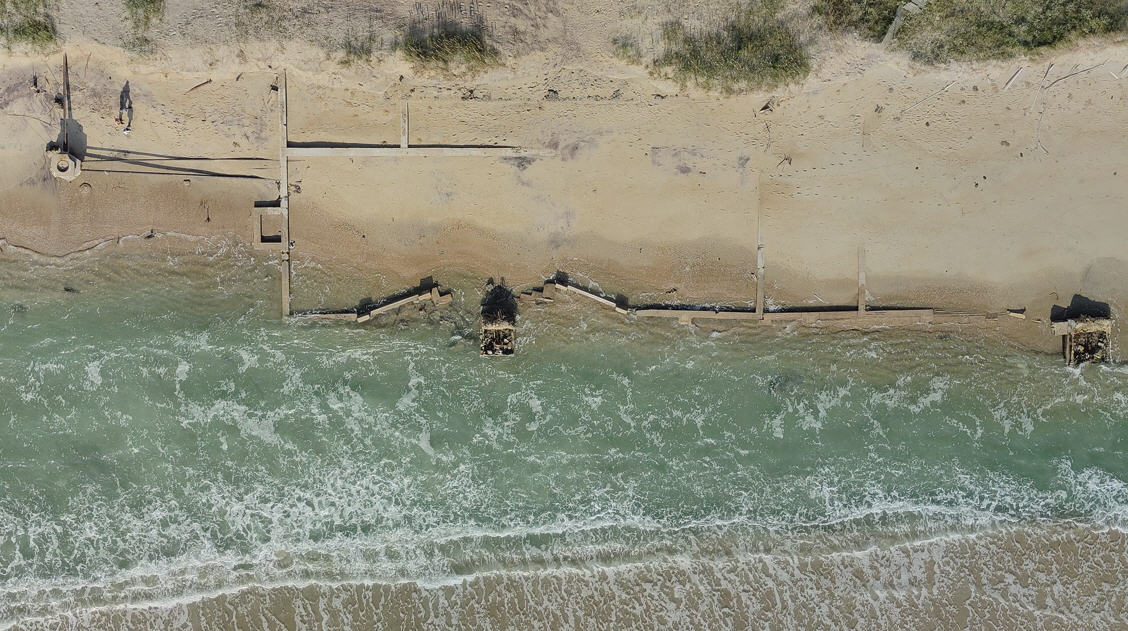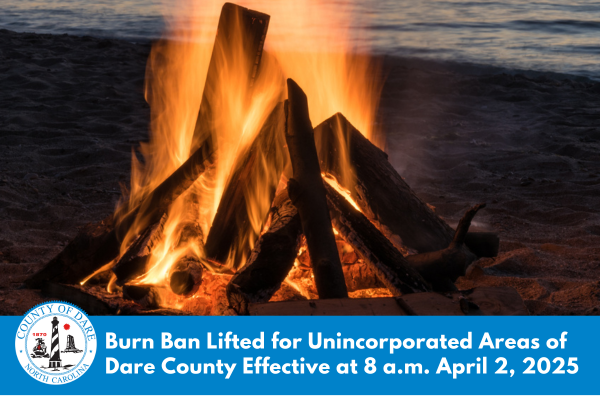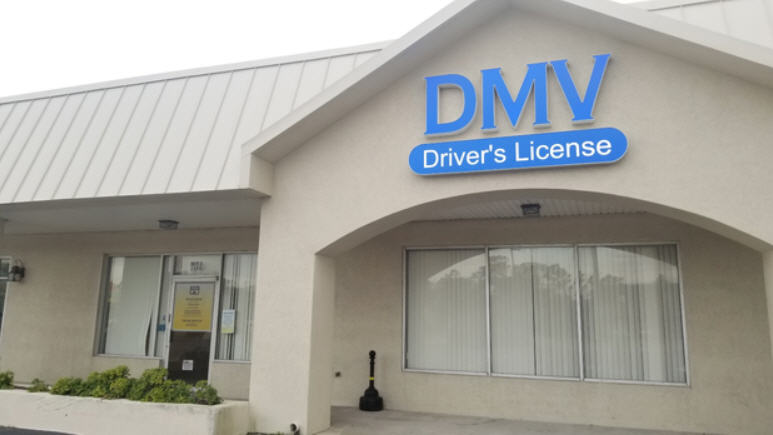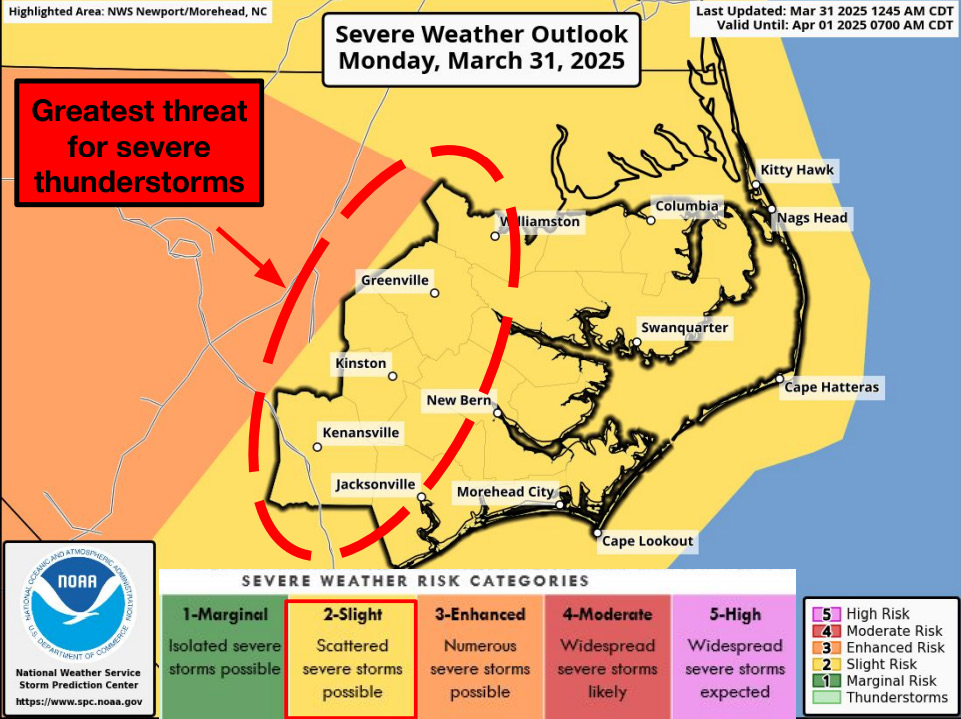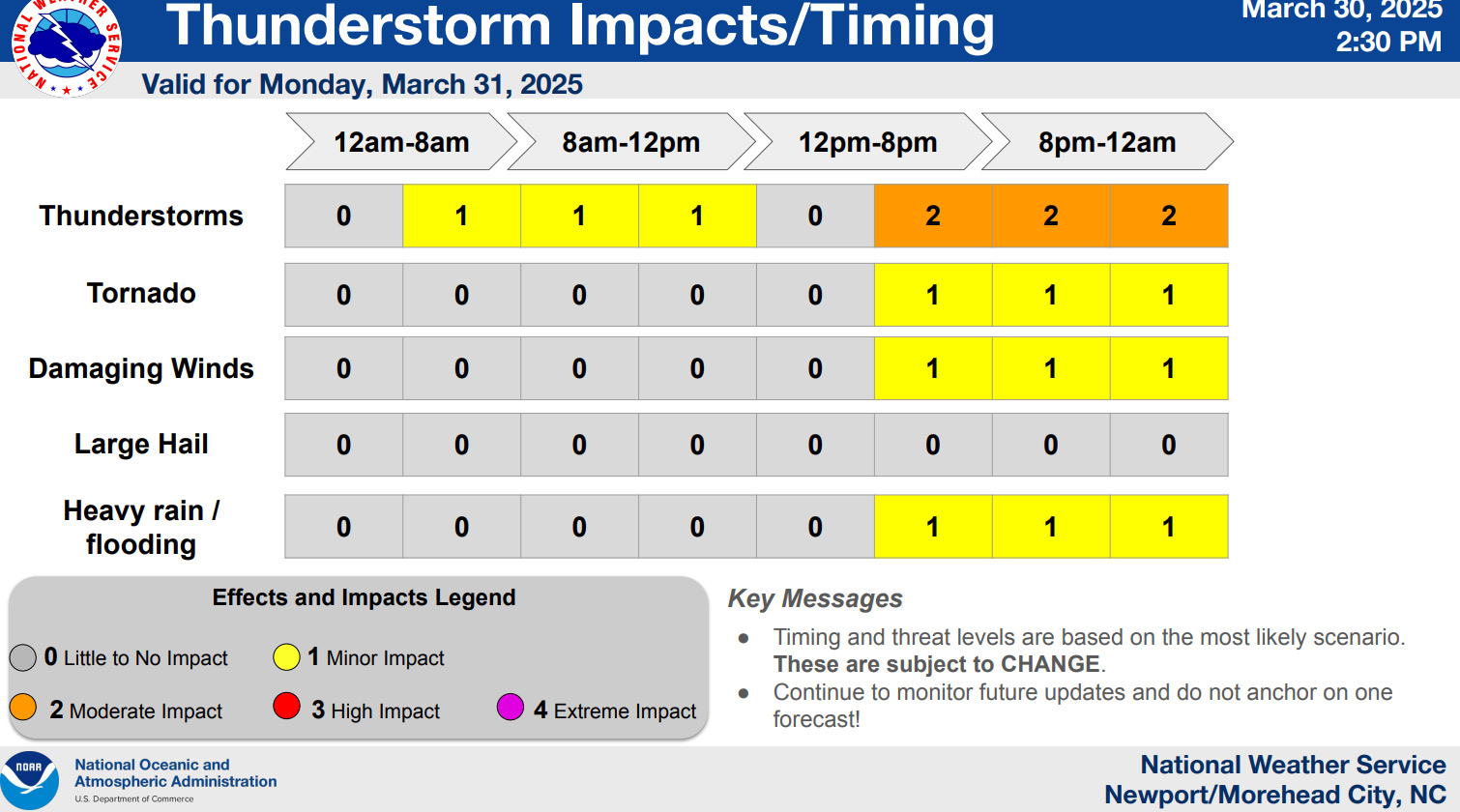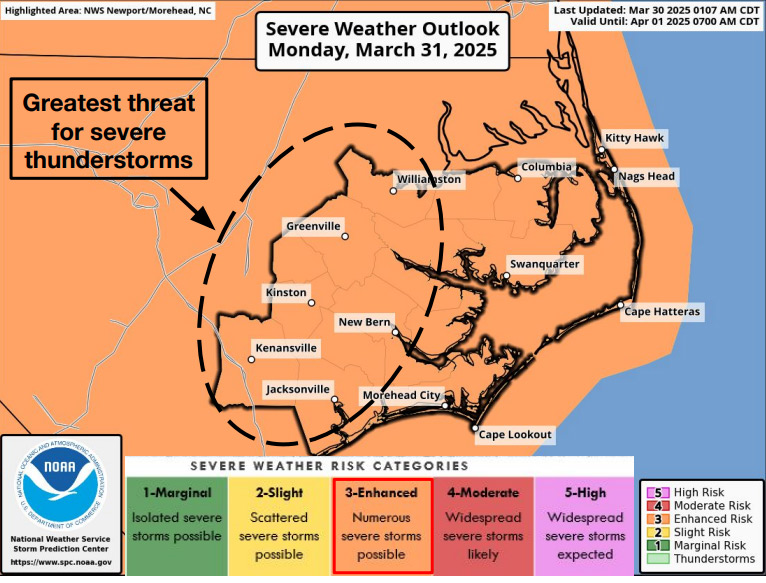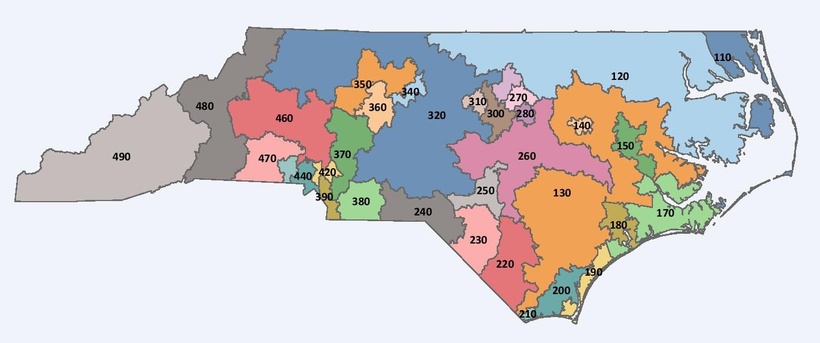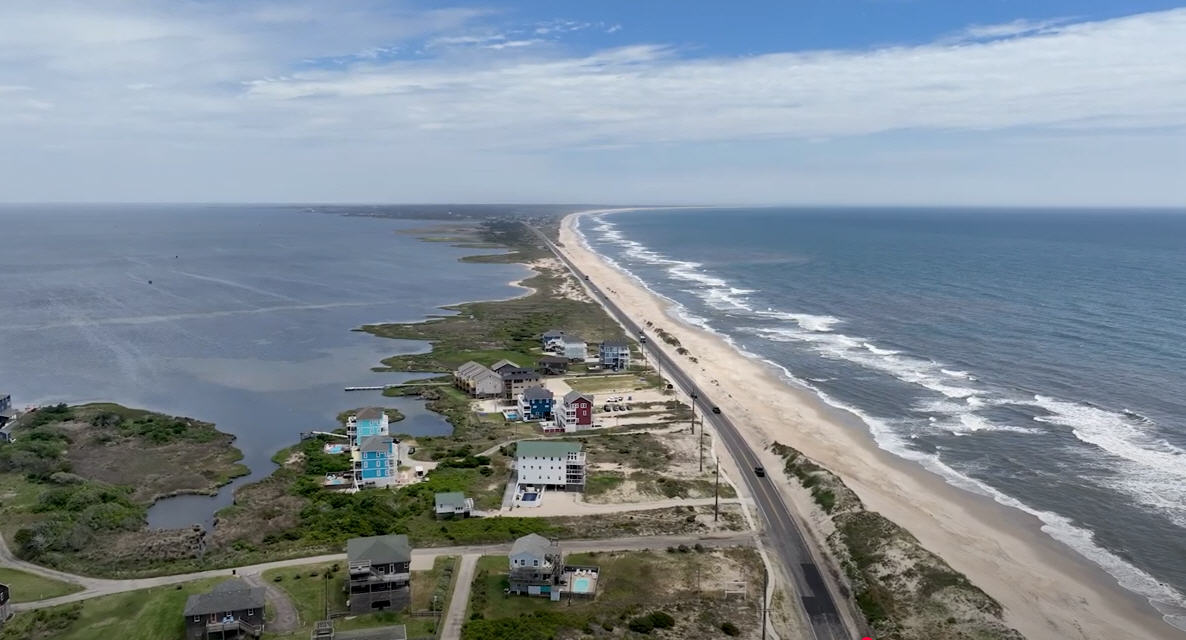Hearing begins on proposed homeowners insurance rate hike of 45.1% along Outer Banks
A hearing began Monday in Raleigh on a request by homeowners insurance companies to raise rates between 34 and 45 percent in Currituck and Dare counties.
The hearing is expected to last several weeks with witnesses, evidence and arguments by attorneys for the state Department of Insurance and the North Carolina Rate Bureau, which represents insurance companies seeking the increase.
The filing released on January 5 by Insurance Commissioner Mike Causey calls for a statewide average increase of 42.2% effective August 1.
He said at a news conference Monday the proposal has generated mover 25,000 comments, with nearly all saying not to allow the increase.
And Causey said the devastation Hurricane Helene caused in western North Carolina could impact the rate increase.
“It very well could be, but you know, it takes a while [to know],” Causey said. “We’re just now seeing impacts from Hurricane Florence, and that was back in 2018, so we have to wait and see how it shakes out.”
Along the Outer Banks, policies would increase by 45.1% from Carova to Ocracoke. The rest of Currituck, Dare and Hyde would go up 33.9%.
Camden, Chowan, Pasquotank, Perquimans, Tyrrell and Washington counties face a 25.6% increase, and Gates County a rise of 30.4%.
Bertie and Martin are in a group of counties that includes Greenville, where the proposed rate increase is 57.8%.
And along the central and southeastern beach areas of the state from Atlantic Beach to the South Carolina border the companies want an increase of 99.4%, while hitting up areas just inland like Wilmington and Jacksonville for 71.4%.
It’s the first request filed by the N.C. Rate Bureau on homeowners insurance policies since a 2021 settlement with the state’s Department of Insurance which raised rates across our entire area of 9.9% and blocked any new rate change proposals until 2024.
This year’s request follows some insurance carriers pulling out of the region entirely, including Nationwide which dropped over 10,000 homeowner policy holders in coastal North Carolina last year.
At the same time, owners of rental properties are facing more increases to their dwelling policies.

North Carolina’s coastal insurance territories were most recently updated in 2015. [NCDOI image]
A settlement between Causey and the Rate Bureau announced in May holds rates for fire building and contents in all territories, while raising extended coverage buildings 14.9% in Territory 110, 5.8% in Territory 130 and 2.5% in Territory 150. There is no change to the rates charged for extended coverage of contents.
According to Donna Creef, Government Affairs Director for the Outer Banks Association of Realtors, estimated rates for a dwelling policy of $400,000 with extended coverage to cover a frame structure with no deductible applied and no content coverage in Territory 110 will increase by an estimated $650 and in Territory 130 by $203.
Coupled with the $279 rate for fire coverage, that will bring the $400,000 policy in Territory 110 to $5,291. In Territory 130, where fire coverage is $525, that policy will run $4,238, Creef said.
The original request called for an increase of more than 75 percent on new and renewing wind and hail policies for vacation and full time rental houses on the Outer Banks.
It also would have hit those in Territory 110 the hardest for extended coverage of buildings (78.6%) and contents (54.5%), while Territory 150 would have seen the area’s highest increase for fire coverage of buildings (31.8%) and contents (18.3%).
In January 2023, Causey granted the Rate Bureau a hike that averaged around 10 percent statewide on dwelling policies.
Causey defended the decision to settle a request to raise insurance rates charged on rental properties for a second straight year.
Until Monday, he had yet to hold a hearing on any rate request since taking office in 2017.
“As the Insurance Commissioner, it is my job to protect consumers by keeping rates as low as possible and maintaining a solvent insurance market,” Causey said.
The Republican, who is running for a third term this fall, announced on May 30 he had reached an agreement with the Rate Bureau that will lead to an average increase statewide of 8% for dwelling policies starting November 1.
“This saved North Carolina consumers $151.7 million per year compared to what the Rate Bureau requested, and allows North Carolina’s insurance market to remain stable and solvent,” Causey said in a statement issued Tuesday.
“Once again, he canceled a public hearing, so the insurance companies didn’t have to justify their higher rates,” said state Sen. Natasha Marcus, the Democratic nominee for Insurance Commissioner, in a fundraising email issued the day after the settlement was announced.
“It’s a sweet deal for insurance companies and a bad deal for North Carolina consumers,” Marcus said.
Causey countered that his predecessors were also inclined to settle requests.
“During the past 20 years, there have been eight dwelling and fire rate filings. Only one went to a hearing,” Causey said. “Settling and not going to court saves consumers and taxpayers money. Hearings are the exception when negotiations fail.”
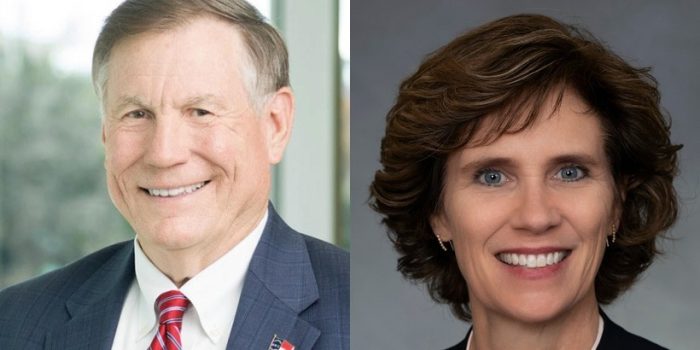
Well over 100 people from across North Carolina took part in a public comment session on the homeowners rate request held in late January.
Residents of northeastern North Carolina and the Outer Banks, who participated both in-person and online, pointed out that the coastal sections of the state were being unfairly targeted once again.
Among them were both Creef and OBAR CEO Willo Kelly, who have been at the forefront of battling the inequities in insurance rates our area has faced when compared to areas well inland.
WRAL-TV reports an attorney for the Rate Bureau said Monday the highest inflation in 40 years — particularly on building materials — combined with calamitous storms that are “getting worse and worse” show that current premium rates are “severely inadequate.”
Causey has also been criticized for supporting legislation passed by the N.C. General Assembly that revamped “consent-to-rate” in 2019, which is an agreement between the customers and insurance companies that allow a higher rate to be charged.
That has been responsible for recent spikes in rates for some customers along the coast that went above and beyond the base rates negotiated between the Department of Insurance and the Rate Bureau.
Some experts have said consent-to-rate is the only way many insurance companies can continue to do business in North Carolina.
The Insurance Department’s attorney argued that the industry continues to use actuarial methods that ignore what state law requires in calculating rate increases, and the bureau’s requested rates are inflated and that the department has data to recommend a decrease.
Marcus and Causey held dueling news conferences outside the Insurance Department headquarters on Monday, NC Newsline reported.
Marcus criticized Causey for declining to preside over the hearing, calling it a “ridiculous dereliction of one of his major duties in this job”.
And she said that delaying any decision will be made after Election Day was a “dodge” by Causey to avoid backlash from voters.
Causey said he’s not hearing the case in part because he’s not an attorney. State law allows him to pick someone else to preside over the hearing, which is a quasi-judicial proceeding.
And he said that his Democratic predecessors, Jim Long and Wayne Goodwin, did the same.
The insurance commissioner has tried to tamp down some of his critics on the coast, holding a forum in Manteo this past March where he stressed that his office had limited power over building code changes and insurance company business decisions in North Carolina that have unnerved homeowners, Coastal Review reported.
While Causey has been taking criticism for settlements, he has also come under fire after a friend and donor cost state taxpayers nearly $14,000 in hotel, meals and other expenses after being hired as the commissioner’s driver with a salary of over $84,000.
An investigation by The News & Observer found Roger Blackwell, 77, also had inconsistent job titles and accompanied Causey on long work trips to locations as far as New Mexico.
Another Causey ally and donor, John Woodard, was hired for what Woodard termed a “make-work” job at the Department of Insurance. He was fired inJuly 2023.
Marcus has repeatedly claimed Causey has taken over $250,000 in campaign donations from the insurance industry.
“Instead of protecting us, he’s been busy lining his campaign coffers with insurance industry cash,” Marcus said. “I am not accepting campaign money from the insurance industry because I don’t want to owe them anything.”
And Causey has rankled members of his own party in the legislature, firing three officials at the state fire marshal’s office last year after the General Assembly stripped Causey of the marshal’s job.
State law gives the Insurance Commissioner 45 days to issue an order once the hearing concludes, which may last well into the early voting period that starts on October 17.
The hearing is open to the public, and is taking place at the Department of Insurance’s office at 3200 Beechleaf Court, Raleigh.





